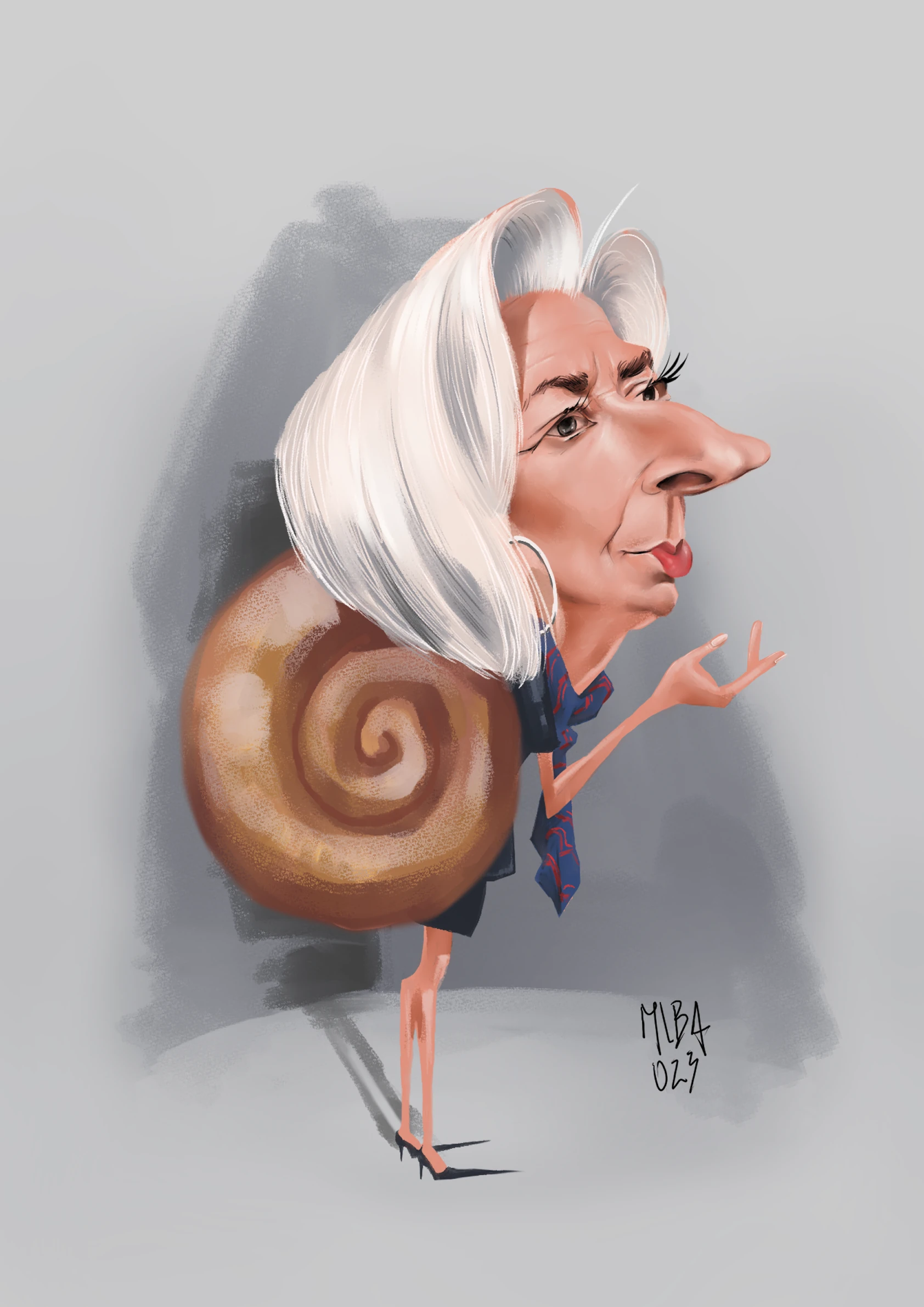
The Snail
LAGARDE Christine, born on January 1, 1956, is a prominent French lawyer and economist who has left an indelible mark on both the international financial landscape and global diplomacy. Her impressive career trajectory has taken her from practicing law to prominent leadership positions in various international organizations, where she has showcased her expertise in economics, finance, and diplomacy.
Lagarde began her career as a lawyer, working at the prestigious law firm Baker & McKenzie in Paris. She quickly rose through the ranks and became the first woman to chair the firm’s executive committee. Her experience in corporate law provided her with a solid foundation in international business practices and financial matters, shaping her understanding of complex economic dynamics.
Lagarde’s journey into the world of international finance took a significant turn when she assumed the role of France’s Minister of Economy, Finance, and Industry in 2007. Her leadership during a tumultuous period of global economic crisis was marked by her resolute decision-making, commitment to stabilizing the French economy, and her constructive engagement with international partners to navigate the challenges of the financial downturn.
In 2011, Lagarde made history by becoming the first woman to head the International Monetary Fund (IMF). As Managing Director of the IMF, she inherited the task of steering the global economy towards recovery from the aftermath of the 2008 financial crisis. Her tenure at the IMF was marked by her unwavering efforts to promote international monetary cooperation, financial stability, and sustainable economic growth.
Lagarde’s leadership at the IMF was characterized by her dedication to improving economic conditions for the most vulnerable nations. She advocated for inclusive growth, recognizing the importance of policies that address inequality and foster sustainable development. Her focus on collaboration, consensus-building, and innovative solutions helped rebuild confidence in the IMF as a global institution capable of addressing complex economic challenges.
Throughout her career, Lagarde’s ability to bridge the gap between economic expertise and diplomacy has been particularly evident. She skillfully navigated the intricacies of international relations, fostering relationships with governments, financial institutions, and other stakeholders. Her diplomatic finesse was vital in forging agreements and coordinating responses to global financial issues.
Lagarde’s achievements have not been without challenges and controversies. Her tenure at the IMF coincided with a period of economic turbulence, sovereign debt crises, and austerity measures that sparked debates about the organization’s policies and their impact on vulnerable populations. Additionally, she faced legal challenges related to her role in a high-profile arbitration case during her time as France’s finance minister.
In 2019, Lagarde embarked on a new chapter in her career as she became the President of the European Central Bank (ECB). In this role, she assumed responsibility for shaping the monetary policy of the Eurozone, addressing economic challenges, and maintaining financial stability within the European Union. Her leadership at the ECB is closely watched as she navigates the complex task of managing a diverse group of economies under the umbrella of a shared currency.
Christine Lagarde’s legacy is one of breaking barriers and reshaping the landscape of international finance and diplomacy. Her trailblazing achievements as a woman in leadership positions have inspired future generations of women to pursue careers in economics, finance, and public service. Her dedication to fostering stability, promoting sustainable growth, and advocating for inclusive policies underscores her commitment to addressing pressing global challenges.
In conclusion, Christine Lagarde’s multifaceted career has positioned her as a key figure in the fields of international finance, diplomacy, and economics. Her roles at the IMF and the ECB, coupled with her achievements in the legal and business sectors, highlight her exceptional ability to combine expertise, leadership, and diplomatic acumen. While her journey has been marked by accomplishments and challenges alike, her impact on the global stage is undeniable, leaving an enduring legacy that continues to shape the international financial landscape.
